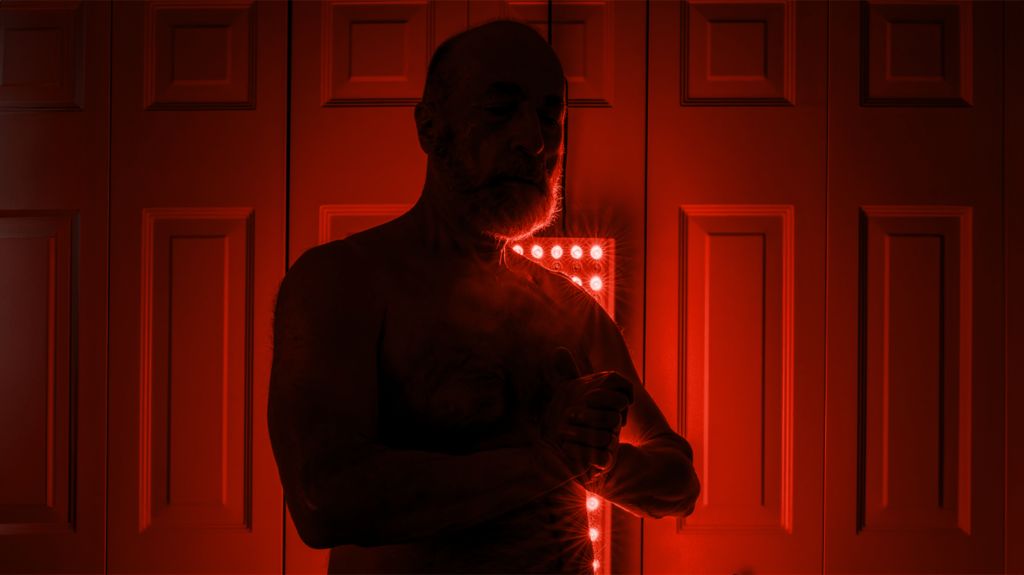
- Researchers are reporting that light therapy might help improve sleep and psycho-behavioral symptoms in people with Alzheimer’s disease.
- They say that current pharmacological treatment can include side effects and increase the risk of falls while light therapy usually does not have side effects.
- Experts said light therapy is a promising potential treatment for Alzheimer’s and dementia.
Light therapy might improve sleep and psycho-behavioral symptoms for people with Alzheimer’s disease, according to a study published today in the journal PLOS ONE.
For this meta-analysis, researchers identified randomized controlled studies on light therapy for Alzheimer’s and dementia.
They said they found 15 high-quality studies published between 2005 and 2022. They were performed in seven countries and included a total of 598 participants.
Their findings indicated that light therapy in people with Alzheimer’s and dementia can be beneficial in several ways:
- Improved sleep efficiency – the ratio between the time a person is actually asleep and the total time dedicated to sleep (i.e how long a person is in bed).
- Increased interdaily stability – a measure of the strength of circadian rhythms, or how consistent daily activity patterns are.
- Reduced interdaily variability – a measure of disruption of circadian rhythms, or how frequently someone transitions between rest and activity during the day.
In people with Alzheimer’s, the researchers said light therapy also reduced depressive symptoms and agitation as well as lowering caregiver burden.
“Persons living with Alzheimer’s disease very often experience behavioral and psychological symptoms of dementia as well as sleeping difficulties,” said Dr. Liron Sinvani, the director of geriatric hospitalist services at Northwell Health in New York who was not involved in the research.
“Up to 90 percent of persons living with Alzheimer’s disease will experience behavioral or psychological symptoms of dementia, including agitation, physical aggression, and depressive behavior,” Sinvani told Medical News Today. “In addition, sleeping difficulties can start in the early stages of Alzheimer’s disease and continue throughout the disease course. These behavioral and psychological symptoms, as well as sleep disturbances, can impact not only the health of the person but also cause significant caregiver burden and stress.”
Current treatments vs. light therapy for Alzheimer’s disease
“We know that [behavioral and psychological symptoms] are commonly treated with antipsychotic or sedating medications, which have been shown to increase the risk of falls, pneumonia, and even death,” Sinvani said. “Non-pharmacological strategies such as music are considered first-line therapies.”
While the researchers found that light therapy had many benefits, they did note that bright light in some environments could increase depressive and anxiety symptoms as some people could perceive it as invasive and unnatural.
Overall, the scientists stated that light therapy significantly improves sleep and psychobehavioral symptoms in people with Alzheimer’s and that it is a promising treatment for this disease.
“This research thus far seems promising and warrants additional attention to address vulnerabilities noted, such as identifying acceptable levels of intensity and duration that promote positive outcomes. This information is necessary for translating results from research to bedside (akin to knowing medication dosage, frequency, etc.), said Stella Panos, PhD, a neuropsychologist and director of neuropsychology for the Pacific Neuroscience Institute in Santa Monica, California, who was not involved in the study.
“Research assessing the impact of photomodulation on psychobehavioral symptoms in patients with dementia has been ongoing for some time, and it’s somewhat surprising that we haven’t made as much progress on the translational front, which may be due to a variety of factors, including underfunding,” Panos told Medical News Today.
“In the context of dementia, there is insufficient support for effectiveness [of cognitive behavioral therapy] for insomnia, and it’s also difficult to deliver this treatment effectively in this population due to varying cognitive limitations,” she added. “For patients with dementia, I often recommend basic behavioral interventions to maximize chances of keeping a regular day-night sleep cycle (e.g., regular sunlight during the day, limiting daytime napping if possible).”
The future of light therapy
The researchers indicated the following limitations of the study:
- Types and degrees of dementia were inconsistent in the different studies.
- A few articles did not clearly describe their randomization, showing possible bias.
Nonetheless, experts say light therapy is something that should be looked at closely as a potential treatment for Alzheimer’s disease.
“Light therapy is a promising form of non-pharmacological strategy to reduce behaviors, but its impact remains inconclusive, mostly because there is great variability between trials regarding light intensity and the duration of treatment needed,” Sinvani said. “This meta-analysis, which considers 15 randomized controlled trials, found that light therapy leads to significant improvement in sleep and behavioral symptoms of dementia. In addition, light therapy was found to have very few side effects. Therefore, light therapy is a potential promising treatment for improving behaviors and sleep in persons living with Alzheimer’s disease.”
Source: Read Full Article
